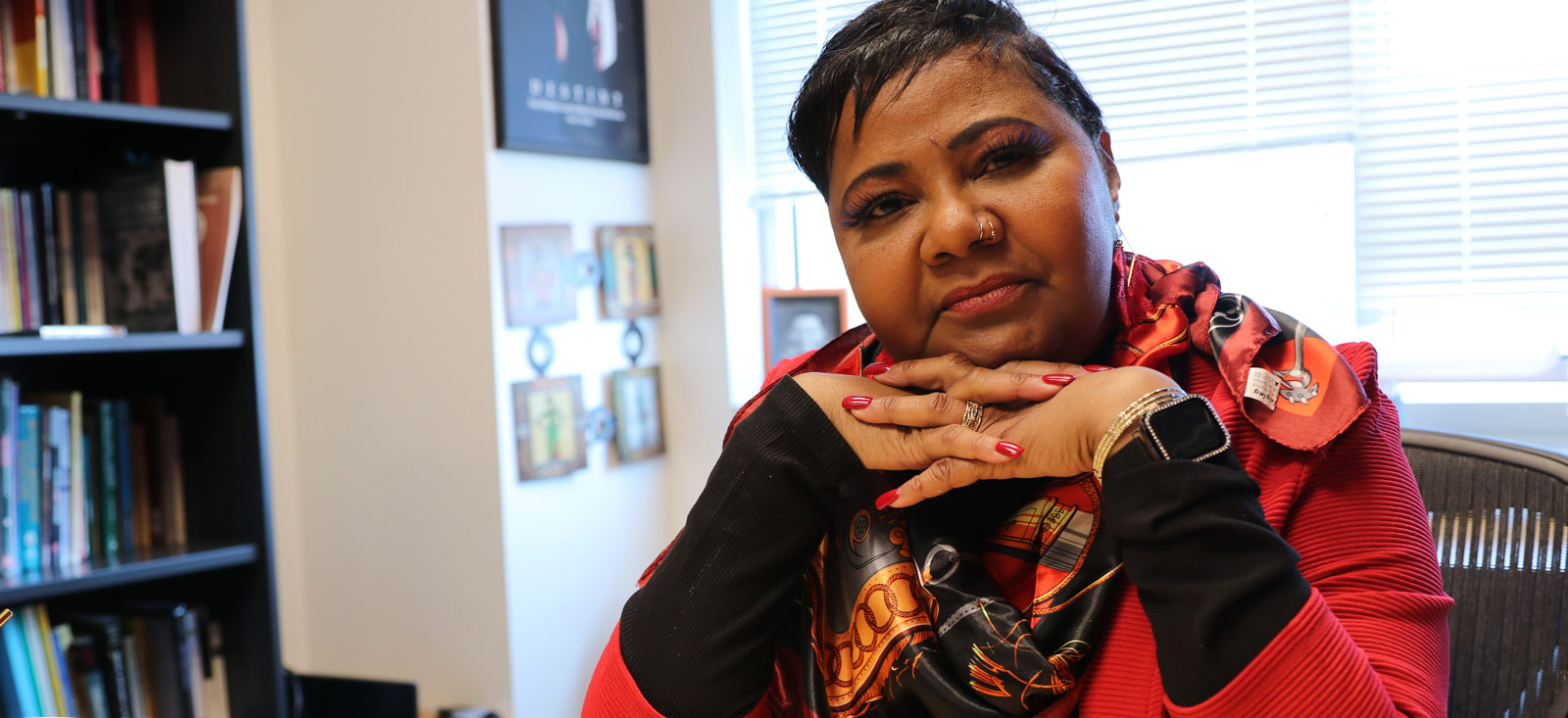
By Donna Y. Ford
Distinguished Professor, Special Education
For almost 30 years, I have been unwavering and unapologetic about demanding racial equity in gifted and talented education, Advanced Placement and opportunities for advanced learners such as summer enrichment programs and competitions. These opportunities have always privileged high-income, white students. They are tantamount to a private school within public school settings.
When I visit schools, I can predict which rooms are designated for advanced learners – the lack of Black students is painfully evident. Whether the buildings or district predominantly white, Black or a mix does not matter. Within schools, racial segregation is apparent.
Data supports that observation. For every year that the U.S. Office for Civil Rights has gathered its Civil Rights Data Collection, Black students have been underrepresented in gifted and talented education and advanced placement nationally, and in most states and districts. Nationally, underrepresentation hovers around 50% for Black students. Each year and each day, the promise and potential of more than 250,000 Black students, especially Black males, are diminished.
Deficit thinking among educators about Black students lies at the heart of underrepresentation; they consistently under-refer Black students for advanced courses. More specifically, the first step in accessing advanced courses and programs is a referral — by teachers and counselors. Thus, the predominantly White female teaching force (around 75%) is the gatekeeper. Compound this with the paucity of educators trained to be anti-racist and culturally competent. Racial discrimination such as anti-Blackness, both intentional and unintentional, is undeniable throughout the entire recruitment and retention process. I dealt with racism as a gifted student in a private school. I experienced it firsthand.
Testing issues are problematic as well, along with content that favors and further privileges the status quo — high-income, white students. Traditional IQ tests are based on the culture, experiences — and language of higher-income White students. Schools often adopt achievement tests that do not align with their district’s curriculum; therefore, students with more opportunities and resources are advantaged. This is crucial to consider in the context of summer learning loss and — now — economic inequities being further exposed by virtual learning and COVID-19. These high stakes tests must be interrogated for differential scores across racial and economic groups in the spirit of equity and ‘do no harm.’
These pervasive racial inequities compelled me and a few colleagues to create The Consortium for Inclusion of Underrepresented Racial Groups in Gifted Education and write “Get Your Knee Off Our Necks: Black Scholars Speak Out to Confront Racism Against Black Students in Gifted and Talented Education.” These efforts were based on increasing racial unrest after the murder of George Floyd and ongoing injustices in gifted and talented education. Prior to this, I and others developed “A Culturally Responsive Equity-Based Bill of Rights for Gifted Students of Color,” to guide educators in the three-fold goal of equity, access and cultural responsiveness. The guide includes eight categories: advocacy and accountability; access to programming and services; evaluation and assessment; more teachers of color; multicultural curriculum and instruction; program evaluation and accountability; social and emotional support; and collaboration with families and communities. The underlying message is, “Stop the excuses and discrimination. Here’s how.”
Some positive news: I am uplifted by Sen. Cory Booker’s and Rep. Joaquin Castro’s proposed Advanced Coursework Equity Act.
“Expanding advanced coursework offerings at schools predominantly serving underrepresented students is a critical first step to implementing advanced coursework equity,” Senator Booker wrote. “Our bill invests in low-income, Black, Latinx, and Native American students, English learners, and students with disabilities, and helps cultivate the genius within them.”
The act would illuminate inequities in schools and incentivizes school leaders to change the status quo so that the most marginalized students have equal opportunities to thrive.
“It is unacceptable that many students of color and students from low-income families are disproportionately denied the opportunity to access the kind of gifted and talented programs in elementary school and advanced coursework in high school that could change their life trajectories,” Booker said.
Funding would be provided to support school districts in the necessary work: An $800 million competitive grant program for states and school districts would increase the enrollment and performance of underrepresented students in advanced courses and programs. Eligible states and school districts could receive up to $60 million in grants to expand enrollment in advanced courses, pay exam fees for low-income students and train and hire teachers for advanced courses.
Here at the College of Education and Human Ecology, we are a catalyst for the same kind of change that Booker advocates. We support equity, justice and inclusion across various diversities, but we seek to be explicit and intentional in our efforts for Black lives.
Structural and systemic racism continues to plague our societies and institutions. It not only threatens the lives of our students, alumni, colleagues and communities, but has negative and material outcomes for certain individuals and groups. The college will remain a strong community partner in the fight for racial equity, so that all children — no matter their circumstances — can reach their full potential and have their dreams fulfilled.

